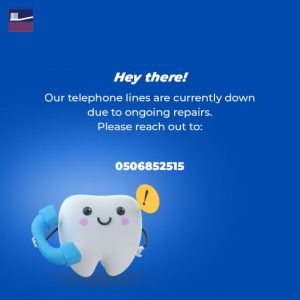
Pulp inflammation or Pulpitis is an inflammation of the dental pulp or the tissue in the center of the tooth. In a healthy dental condition, the enamel and dentin layers may protect the pulp from infection. However, when these protective layers are overlooked or compromised, it allows bacteria to invade your pulp, which in turn, causes swelling. Because of this swelling, your pulp remains trapped inside the tooth’s wall, causing pressure, pain, infection, or inflammation.
This article will focus on the causes of pulp inflammation, types, and their relevant treatments.
Causes
Pulp inflammation can be caused by several conditions, of which the most common ones are as follows:
- Tooth injuries, such as an impact or trauma i.e. fractured tooth, which exposes the pulp
- Tooth erosion
- Excessive crown preparations
- Deep cavities close to the pulp
- Bruxism (grinding) or clenching the teeth
- Repeated, invasive dental procedures
- Repetitive dental trauma caused by dental issues like jaw misalignment
Types
Pulp inflammation is mainly of two types: reversible and irreversible.
Reversible Pulpitis
This is an instance where the pulp inflammation is mild, and you may have short-lived pain. If you’re experiencing a reversible pulp inflammation, then a tooth may have a cavity that is not yet deep enough- so the presence of bacteria in the pulp is very less.
Usually, when you have reversible pulpitis you may experience pain when you eat something sweet or cold- but this goes away quickly once the stimulant is gone. Thankfully in reversible pulpitis, the pulp remains healthy enough to be saved.
Irreversible Pulpitis
This is where the bacteria spread to the nerve and has a significant inflammation of the pulp- which is almost always unhealthy to be saved. This infection develops at the root of your tooth and can cause a pocket of pus to form. When left untreated, the infection can spread to other parts of your body like the jaw, sinuses, or even the brain.
This type of pulp inflammation can cause intense spontaneous pain. However, patients with pulp inflammation cannot pinpoint the exact location of the pain, and around 40% of patients may experience painless irreversible pulpitis.
Treatment
The treatment for pulp inflammation depends on what type of inflammation you have.
Treatment for reversible pulp inflammation
For reversible pulp inflammation, treating the underlying cause of your inflammation can help. For example, if a cavity is a cause of your pulp inflammation, removing the decayed area and adding a filling to stop the pulp from being exposed will treat the condition.
And in cases of reversible tooth inflammation caused by a crack in the tooth, it can be treated with a crown.
Treatment for irreversible pulp inflammation
When you have an irreversible pulp inflammation, your dentist will usually recommend you see a specialist such as an endodontist. If it’s possible, your tooth can be saved using a treatment procedure called Root Canal Treatment. Under this treatment, your pulp is removed, and the un-affected part of the tooth is left intact. Once the pulp tissue is removed, the hollow area of the tooth is disinfected and sealed, and a crown is fabricated for support.
When this procedure isn’t possible because the damage of the inflammation has spread too far, the only possible treatment is tooth extraction. If you have to undergo this treatment, there are plenty of other ways to replace the missing tooth using dentures, a bridge, or dental implants.
If you doubt you’re suffering from pulp inflammation, contact us at The American Dental Clinic. With our highly competent team of specialists and latest dental technologies, we assure every patient is treated with a tailor-made treatment plant to best suit their dental conditions and other aesthetic dental requirements.





